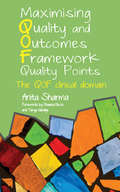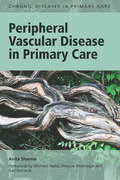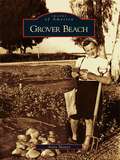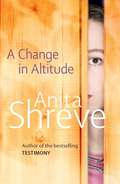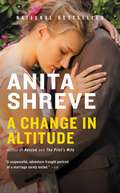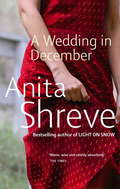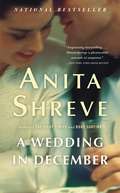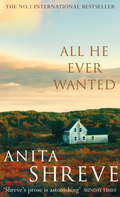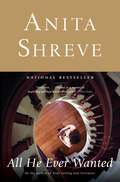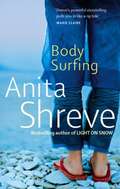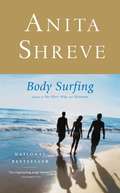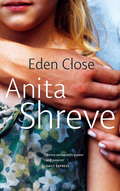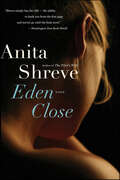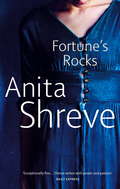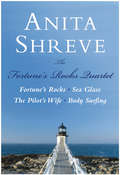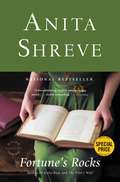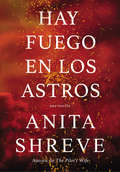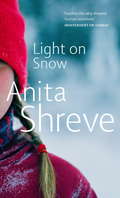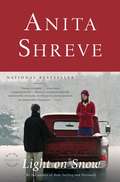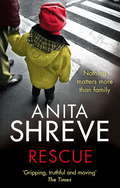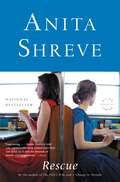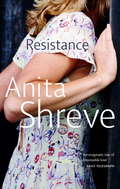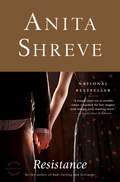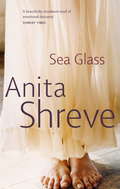- Table View
- List View
Maximising Quality and Outcomes Framework Quality Points: The QOF Clinical Domain (Radcliffe Ser.)
by Anita Sharma'The Quality and Outcomes Framework (QOF) is a system to financially reward general practices for providing quality care to their patients. It is a fundamental part of the GMS contract, introduced in April 2004. QOF is estimated to have saved up to 10,000 lives a year since its introduction - ' - From the Preface Filled with practical guidance and tips, this book explains everything you need to do in order to score 'maximum' on all the clinical indicators in the QOF. Using tables and lists, it details areas such as setting up a disease register, ensuring that you have an accepted definition of the condition, arranging a practice meeting to discuss registers and motivating team members to use and think about templates as well as cross-checking hospital letters and discharges summaries, conducting a repeat prescription search, actively screening at-risk patients and ensuring an efficient call and recall system. These are the basic rules which apply to any and every clinical indicator. Offering guidance on and insight into the origins of different targets, possible shortfalls, and ways to implement change and improve scores, this easy-to-read book is vital for all general practitioners, GP Commissioners, QOF assessors, and PCT QOF teams. Practice nurses, who are often relied upon to maintain QOF standards, will find the information essential. GP Registrars, medical students, Pharmacists, Health Care Assistants and Practice Managers will also find much of interest.
Microbes and Signaling Biomolecules Against Plant Stress: Strategies of Plant- Microbe Relationships for Better Survival (Rhizosphere Biology)
by Anita SharmaThis book sheds new light on ways to alleviate biotic and abiotic stress in plants, using signaling molecules of plant growth promotory rhizobacteria. Further, it elaborates on the different types of stress and strategies used by plants under various stress conditions. The respective sections describe the importance of the microbiome for the overall health of plants and how exploring plant-microbe communication and signaling pathways could offer a promising avenue for future research. The book also discusses how rhizobacteria could be exploited in stress alleviation and sustainable agriculture, and addresses omics strategies for stress response and mitigation. Thanks to clearly annotated references, the book also supports and encourages readers to further explore the topics discussed.
Peripheral Vascular Disease in Primary Care (Radcliffe Ser.)
by Anita Sharma'Peripheral vascular disease is common and has a significant adverse effect on the quality of life. A general practice with a list size of 6000 patients will have approximately 30 symptomatic patients with peripheral vascular disease' - Anita Sharma Peripheral vascular disease is a commonly neglected condition and therefore often presents in an advanced stage or in a life-threatening manner. General practitioners can play a vital role by making early diagnoses, prompt referrals, and in coordinating vascular risk factor management in primary care. This book is a concise and practical guide to recognising, managing and reducing the cardiovascular risk factors in patients with peripheral vascular disease (PVD). Completely up-to-date, it offers clear direction for all primary care professionals. 'A pleasure for any busy professional to read and an excellent source and reference book for all primary care professionals. Students, nurses and registrars will be surprised with the descriptions of various pathologies simply explained, which they will seldom have noticed while working on hospital wards.' Dr Michael Taylor, in his Foreword 'A welcome source of knowledge and information, particularly for those working in the primary care setting with the aim of improving their standards of care.' - Dr Deepak Bhatnagar, in his Foreword 'Anita Sharma is an experienced, practising GP whose book on PVD offers new insights for primary care professionals and is a generous contribution to the work of primary care practitioners everywhere.' - Gail Richards, in her Foreword
Grover Beach
by Anita ShowerThe city of Grover Beach is nestled in the dunes of the California coastline in San Luis Obispo County. In 1842, Jose Ortego received a Mexican land grant and made the first claim on the area. Ortego sold his 8,838 acres to Isaac Sparks in 1867, and Sparks later sold half to John Price. Price sold his share to Dwight William Grover for $22,982.20 in gold. By 1887, Grover had filed with the county and founded the Town of Grover. Developers John F. Beckett in 1892 and Horace V. Bagwell in 1935 followed. Growing gradually, the city incorporated in 1959, changed its name to Grover Beach in 1992, and received Amtrak rail service in 1996--a permanent connection to the surrounding communities and commerce. The city has come full circle, from D. W. Grover's dream to reality.
A Change In Altitude
by Anita ShreveMargaret and Patrick, married just a few months, set off on a great adventure - a year living in Kenya. While Patrick practices medicine, Margaret works as a photojournalist, capturing a dizzying and sometimes dangerous city on film.When a British couple invites the newlyweds on a climbing expedition to the summit of Mount Kenya, they eagerly agree. But during their arduous ascent a horrific accident occurs. In its aftermath, Margaret struggles to understand what happened on the mountain and how it has transformed her and her marriage, perhaps for ever. With stunning language and striking emotional intensity, A Change in Altitude illuminates the irrevocable impact of tragedy and the elusive nature of forgiveness.
A Change in Altitude: A Novel
by Anita ShreveMargaret and Patrick have been married just a few months when they set off on what they hope will be a great adventure--a year living in Kenya. Margaret quickly realizes there is a great deal she doesn't know about the complex mores of her new home, and about her own husband. A British couple invites the newlyweds to join on a climbing expedition to Mount Kenya, and they eagerly agree. But during their harrowing ascent, a horrific accident occurs. In the aftermath of the tragedy, Margaret struggles to understand what happened on the mountain and how these events have transformed her and her marriage, perhaps forever. A Change in Altitude illuminates the inner landscape of a couple, the irrevocable impact of tragedy, and the elusive nature of forgiveness. With stunning language and striking emotional intensity, Anita Shreve transports us to the exotic panoramas of Africa and into the core of our most intimate relationships.
A Wedding In December
by Anita ShreveAt an inn in the Berkshire Mountains of western Massachusetts, seven former schoolmates gather for a wedding. Nora, the owner of the inn, has recently had to reinvent her life following the death of her husband. Avery, who still hears echoes from a horrific event at Kidd Academy twenty-six years ago, has made a life for himself in Toronto with his wife and two sons. Agnes, now a history teacher at Kidd is a woman who longs to tell a secret she cannot reveal to the others, a secret that would stun them all. Bridget, the mother of a fifteen-year-old boy, has agreed to marry Bill, an old high school lover whom she has recently remet, despite uncertainties about her health and future. Indeed, it is Bill who passionately wants this wedding and who has brought everyone together for an astonishing weekend of revelation and recrimination, forgiveness and redemption. This is Anita Shreve's most ambitious and moving novel to date, probing into human motivation with extraordinary grace and skill.
A Wedding in December: A Novel
by Anita ShreveIn Massachusetts, seven former schoolmates gather for a wedding. Nora, the owner of the inn, has recently had to reinvent her life following the death of her husband. Avery, who still hears echoes from a horrific event at Kidd Academy twenty-six years ago, has made a life for himself in Toronto with his wife and two sons. Agnes, now a history teacher at Kidd is a still-single woman who longs to tell a secret she cannot reveal to the others, a secret that would stun them all. Bridget, the mother of a 15-year-old boy, has agreed to marry Bill, an old high school lover whom she has recently re-met, despite uncertainties about her health and future. Indeed, it is Bill who passionately wants this wedding and who has brought everyone together for an astonishing weekend of revelation and recrimination, forgiveness and redemption. This is Anita Shreves most ambitious and moving novel to date, probing into human motivation with the grace and skill that have made her one of the finest novelists of her time (Boston Herald).
All He Ever Wanted
by Anita ShreveA man escaping from a hotel fire sees a woman standing beneath a tree. He approaches her and sets in motion a series of events that will change his life forever. Years later, traveling from New England to Florida by train, he reflects back on his obsession with this unknown and ultimately unknowable woman - his courtship of her, his marriage to her, and the unforgivable act that ripped their family apart.Spanning three decades from 1899 to 1933, All He Ever Wanted gives us a tale of marriage, betrayal and the search for redemption. It has the unmatched attention to details of character, place and emotion that have made Anita Shreve one of the world's best-loved and bestselling novelists.
All He Ever Wanted: A Novel
by Anita Shreve"A marriage is always two intersecting stories." This realization comes perhaps too late to the husband of Etna Bliss-a man whose obsession with his young wife begins at the moment of their first meeting, as he helps Etna and her companions escape from a fire in a hotel restaurant, and culminates in a marriage doomed by secrets and betrayal. Written with the intelligence and grace that are the hallmarks of Anita Shreve's bestselling novels, this gripping tale of desire, jealousy, and loss is peopled by unforgettable characters as real as the emotions that bring them together.
Body Surfing
by Anita ShreveAt the age of twenty-nine, Sydney has already been once divorced and once widowed. Trying to find her footing again, she has answered an advertisement to tutor the teenage daughter of a well-to-do couple as they spend a sultry summer in their oceanfront New Hampshire cottage.But when the Edwards' two grown sons, Ben and Jeff, arrive at the beach house, Sydney finds herself caught up in a destructive web of old tensions and bitter divisions. As the brothers vie for her affections, the fragile existence Sydney has rebuilt is threatened. With the subtle wit, lyrical language, and brilliant insight into real emotion that has led her to be called 'a supremely elegant anatomist of the human heart' (The Times), Shreve weaves a story about risk, family, and the supreme courage that it takes to love.
Body Surfing: A Novel (The\fortune's Rocks Quartet Ser. #Bk. 4)
by Anita ShreveAt the age of 29, Sydney has already been once divorced and once widowed. Trying to regain her footing once again, she has answered an ad to tutor the teenage daughter of a well-to-do couple as they spend a sultry summer in their oceanfront New Hampshire cottage. But when the Edwards' two grown sons, Ben and Jeff, arrive at the beach house, Sydney finds herself caught up in a destructive web of old tensions and bitter divisions. As the brothers vie for her affections, the fragile existence Sydney has rebuilt for herself is threatened. With the subtle wit, lyrical language, and brilliant insight into the human heart that has led her to be called "an author at one with her metier" (Miami Herald), Shreve weaves a novel about marriage, family, and the supreme courage that it takes to love.
Eden Close
by Anita ShreveAndrew, an advertising executive in his mid-30s, returns to his hometown in upstate New York for his mother's funeral. He does not intend to stay in the slow rural backwater he left seventeen years before. But the dreams and memories persist and in the darkened farmhouse he relives that hot, bloody night when Eden Close was blinded - by the same gun that killed her father.The enigmatic Eden had been Andrew's childhood companion. Together the two roamed summer cornfields, smoked their first forbidden cigarettes, skated, fished and fought until the tomboy turned temptress - then their friendship ended. Now, despite warnings, Andrew is drawn again to this lost, blind girl of his youth, drawn to save her from the cruel neglect she has endured for seventeen sightless years without him. But first he must discover the grisly truth about that night...
Eden Close: Eden Close; Strange Fits Of Passion; Where Or When
by Anita ShreveChildhood friends reunite years after a shattering tragedy in this “compelling page-turner” by the New York Times–bestselling author (Kirkus Reviews, starred review).When Andrew was about to leave his small upstate New York town for college, tragedy struck the beautiful girl next door, Eden Close. An adopted child, Eden had learned to avoid the mother who did not want her and to please the father who did. She also aimed to please Andrew and his friends, first by being one of the boys and later by seducing them. Then one hot night, Andrew was awakened by gunshots and piercing screams from the next farm: Mr. Close had been killed and Eden blinded.Now, seventeen years later, Andrew returns to his upstate New York hometown to attend his mother’s funeral, and begins to uncover the grisly story––to unravel the layers of thwarted love between the husband, wife, and tormented girl. And as the truth about Eden’s past comes to light, so too does Andrew’s strange and binding attachment to her . . . “Eden’s story has the heightened emotions, the dark, brooding atmosphere of a Southern gothic novel . . . Shreve demonstrates her ability to create highly vivid, sympathetic people.” —The New York Times“Beautifully rendered scenes.” —Kirkus Reviews (starred review)“Shreve simply has the Gift—the ability to hook you from the first page and not let go until the final word.” —The Washington Post Book World
Fortune's Rocks
by Anita ShreveFortune's Rocks transports the reader to the turn of the twentieth century, to the world of a prominent Boston family summering on the New Hampshire coast...'No praise is too high for Fortune's Rocks. The book will take hold of you and not let you go until the last word' USA Today'Exceptionally fine . . . Shreve writes with power and passion' Daily ExpressFourteen-year-old Olympic Biddeford is spending the summer with her parents at their seasonal house at Fortune's Rocks. Her father handles her education himself and is in fact a publisher of mildly liberal literature. One author he admires, who also practises as a physician, comes to visit the house. Forty years old, married with four children, he embarks on an affair with Olympia. They have a swift, passionate summer, torn apart when they are discovered together during Olympic's fifteenth birthday party. Her parents are mortified and immediately take Olympia back to Boston. When a baby boy is born nine months later, he is taken from her and she finds herself in exile at a ladies college and then as a governess. She decides she must get her child back, which means returning to Fortune's Rocks...
Fortune's Rocks Quartet: Fortune's Rocks, Sea Glass, The Pilot's Wife, Body Surfing (The\fortune's Rocks Quartet Ser. #Bk. 1)
by Anita ShreveTHE FORTUNE'S ROCKS QUARTET collects four of Anita Shreve's most beloved novels--Fortune's Rocks, The Pilot's Wife, Sea Glass, and Body Surfing--for the first time. The novels highlight Shreve's ability to illuminate women's lives across different eras and share a delightful detail: they are all set in the same coastal New England home, one that has inspired Shreve for over a decade. Any house with age to it can tell a million stories about the families who have lived there, and Shreve has been quoted as saying, ''You could base an entire life's work on the people who come in and out of a house.''
Fortune's Rocks: A Novel (The\fortune's Rocks Quartet Ser. #Bk. 3)
by Anita ShreveEverywhere hailed for its emotional intensity and unflagging narrative momentum, this magnificent novel transports us to the turn of the twentieth century, to the world of a prominent Boston family summering on the New Hampshire coast, and to the social orbit of a spirited young woman who falls into a passionate, illicit affair with an older man, with cataclysmic results.
Hay fuego en los astros: Una novela
by Anita ShreveEn octubre de 1947, Grace Holland atraviesa dos sequías simultáneas. Un verano extremadamente caluroso y seco ha convertido el estado de Maine en un polvorín. Grace y su esposo Gene han perdido el amor y ya casi no se hablan. Con cinco meses de embarazo y cuidando a dos niños pequeños, la vida de Grace se resume nada más a la soledad y sus labores domésticas. Una noche se despierta y descubre que los incendios arrasan la costa y se acercan cada vez más a su casa. Se ve obligada a arrojar sus hijos al mar para escapar de las llamas, mientras observa impotente cómo todo lo que conoce arde hasta los cimientos. Por la mañana, su vida cambiará para siempre: está sin hogar, sin dinero, esperando noticias sobre la suerte de su marido, y se encuentra abandonada frente a un futuro incierto en una ciudad que ya no existe. Con valentía y estoicismo, Grace supera una pérdida devastadora y, a pesar del humo, avista la oportunidad de reescribir su historia. X
Light On Snow
by Anita ShreveI watched my father run forward in his snowshoes the way one sometimes does in dreams, unable to make the legs move fast enough. I ran to the place where he knelt. I looked down into the sleeping bag. A tiny face gazed up at me, the eyes wide despite their many folds. The baby was wrapped in a bloody towel, and its lips were blue.' The events of a December afternoon on which a father and his daughter find an abandoned infant in the snow will forever alter eleven-year-old Nicky Dillon's understanding of the world which she is about to enter and the adults who inhabit it: a father who has taken great pains to remove himself from society in order to put behind him an unthinkable tragedy; a young woman who must live with the consequences of the terrible choices she has made; and a detective whose cleverness is superseded only by his sense of justice. Written from the point of view of thirty-year-old Nicky as she recalls the vivid images of that fateful December, hers is a tale of love and courage, of tragedy and redemption, and of the ways in which the human heart always seeks to heal itself.
Light on Snow
by Anita ShreveWritten from the point of view of 30-year-old Nicky as she recalls the vivid December day, 19 years earlier, when she and her father found an abandoned infant in the snow, this is a beautiful contemporary novel about love and memory from the author of the bestselling "All He Ever Wanted" and "The Pilot's Wife."
Rescue
by Anita ShreveIs love always worth saving - no matter what the cost?The car crash should have killed her. But rookie paramedic Peter Webster takes the emergency call, and helps the young woman, Sheila Arsenault, to survive. After the accident, she haunts his thoughts, despite his misgivings about getting involved with a patient. Soon he is embroiled in an intense love affair and in Sheila's troubled life. Eighteen years later, Sheila is long gone and Peter is raising their daughter, Rowan, alone. But Rowan is veering dangerously off course and for the first time in their quiet life together Peter fears for her future. He seeks out the only person who may be able to help Rowan, although Sheila's return is sure to unleash all the questions Peter has been carefully keeping at bay: Why would a mother leave her family? How did the marriage of two people in love unravel?
Rescue: A Novel
by Anita ShreveA rookie paramedic pulls a young woman alive from her totaled car, a first rescue that begins a lifelong tangle of love and wreckage. Sheila Arsenault is a gorgeous enigma--streetwise and tough-talking, with haunted eyes, fierce desires, and a never-look-back determination. Peter Webster, as straight an arrow as they come, falls for her instantly and entirely. Soon Sheila and Peter are embroiled in an intense love affair, married, and parents to a baby daughter. Like the crash that brought them together, it all happened so fast. Can you ever really save another person? Eighteen years later, Sheila is long gone and Peter is raising their daughter, Rowan, alone. But Rowan is veering dangerously off track, and for the first time in their ordered existence together, Webster fears for her future. His work shows him daily every danger the world contains, how wrong everything can go in a second. All the love a father can give a daughter is suddenly not enough. Sheila's sudden return may be a godsend--or it may be exactly the wrong moment for a lifetime of questions and anger and longing to surface anew. What tore a young family apart? Is there even worse damage ahead? The questions lifted up in Anita Shreve's utterly enthralling new novel are deep and lasting, and this is a novel that could only have been written by a master of the human heart.
Resistance
by Anita ShreveAs the wife of a Resistance member in German-occupied Belgium, Claire Daussois has grown used to hiding strange men in her attic. By the end of 1943, the tiny room has housed dozens of Allied airmen, soldiers and other refugees, whom Claire nurses and harbours from the perpetual threat of discovery by the Gestapo.The B-17 bomber that crash-lands outside Claire's village of Delahaut contains the man who will be both the last and the most significant of the attic's residents: US Air Force pilot Ted Brice. Ted is found severely wounded and semi-conscious by ten-year-old Jean Benoit minutes before the Germans begin their search for survivors. Knowing of Claire's connections with the Resistance, and desperate to atone for his father's shameful collaboration, Jean realises that Claire is the pilot's only hope of survival.The month that follows will stay with them both for the rest of their lives. A few weeks only, a handful of days, it is a period in which the war recedes in the face of more powerful forces - before imposing itself once more with shocking suddenness.
Resistance: A Novel
by Anita ShreveThis tale of impossible love--told with the same narrative grace and keen eye for human emotion that have distinguished all of Anita Shreve's cherished bestsellers--leads us into a harrowing world where forbidden passions have catastrophic consequences. In a Nazi-occupied Belgian village, Claire Daussois, the wife of a resistance worker, shelters a wounded American bomber pilot in a secret attic hideaway. As she nurses him back to health, Claire is drawn into an affair that seems strong enough to conquer all--until the brutal realities of war intrude, shattering every idea she ever had about love, trust, and betrayal.
Sea Glass
by Anita ShreveThe year is 1929 and Honora Beecher and her husband, Sexton, are just settling into a new marriage and a cottage on the coast of New Hampshire. While Honora fixes up the derelict house and searches for bits of sea glass on the beach, Sexton risks everything they own to buy the house they both love. Along with millions of other Americans, he is blindsided by the stock market crash and finds himself penniless. The only work he can find is at a nearby mill, where a labour conflict is erupting into violence. Shaken by forces they scarcely understand, Honora and Sexton try to build a marriage and home while overwhelmed by passions of every kind.Writing with the power and immediacy that have made her novels bestsellers, Shreve unfolds interlocking lives, each with its own share of love, loss and challenge. This is another gripping and unforgettable story of the human heart from one of the most accomplished novelists of our time.
